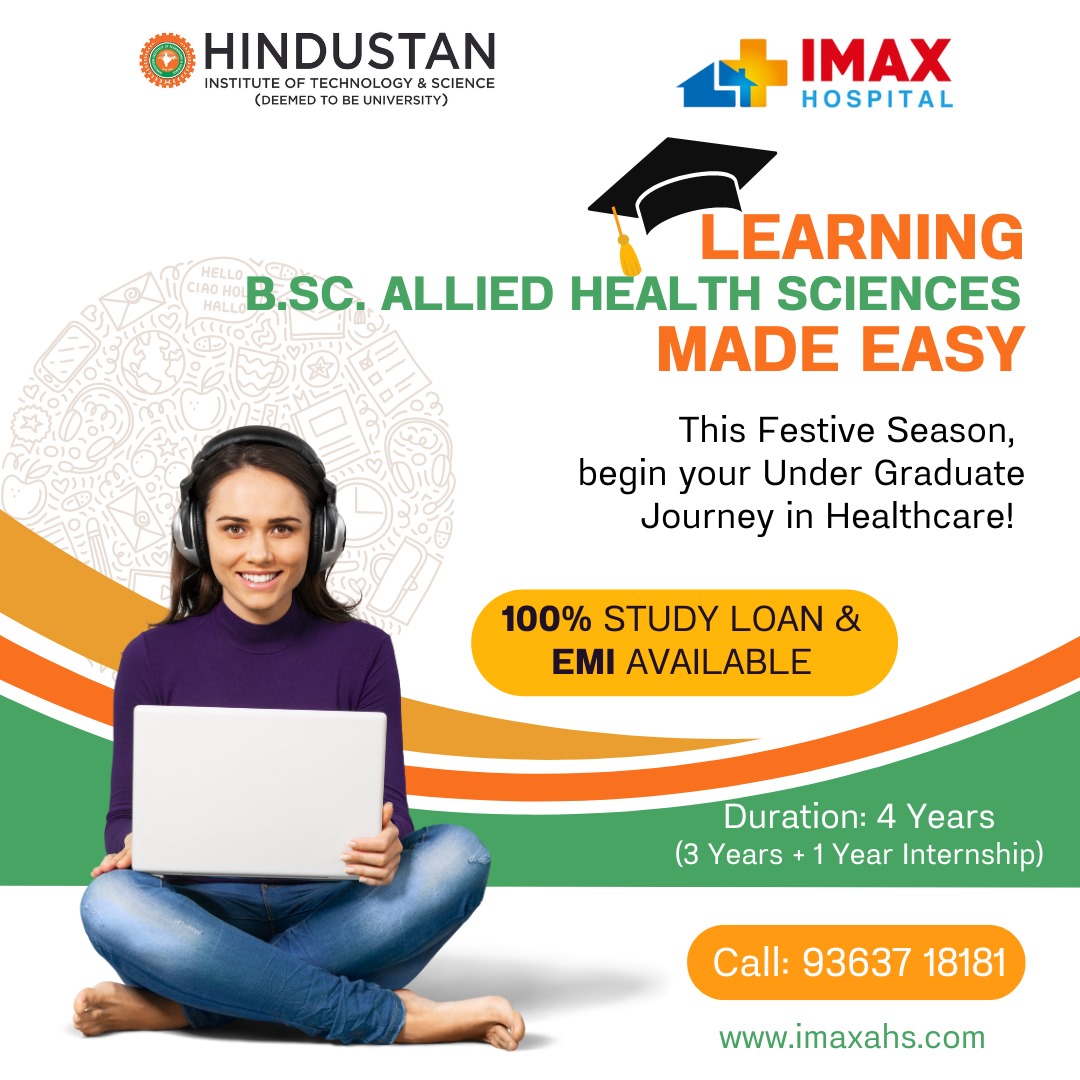B. Sc Cardiac Technology
A Bachelor of Science in Cardiac Technology (B.Sc. Cardiac Tech) 3-years study + 1 year internship program is designed to equip students with the specialized knowledge and skills required to assist healthcare professionals in the diagnosis, treatment, and management of cardiovascular diseases. Cardiac technologists play a crucial role in performing various cardiac diagnostic procedures and monitoring patients' cardiac health.
Overall, a B.Sc. in Cardiac Technology will give student the ability to work in Hospitals and Cardiac Centers, Highly Specialized Corporate hospitals to assistant cardiac Cath Labs, Cardiac OTs and in doing doing Echo Cardiogram and cardiac related test like Holter monitoring, TMT and ECG
There is an excellent demand both in India and Abroad for this technologist.
- Salary package in India is around Rs. 6- 10 LPA.
- Salary package in abroad is around Rs. 24 - 30 LPA.

The curriculum of a B.Sc. Cardiac Tech program typically covers courses in cardiovascular anatomy and physiology, electrocardiography (ECG), stress testing, echocardiography, cardiac catheterization, cardiac pharmacology, and cardiovascular patient care. Students also learn about medical instrumentation, data analysis, quality control, and ethical considerations in cardiac technology.
Hands-on training is an essential component of B.Sc. Cardiac Tech programs, with students gaining practical experience in cardiac diagnostic procedures through supervised clinical rotations in hospitals, cardiology clinics, or diagnostic imaging centers. During these rotations, students learn to perform ECGs, stress tests, echocardiograms, and other cardiac tests, as well as assist physicians during cardiac catheterization procedures or electrophysiology studies.
Upon completion of the program, graduates may pursue certification as Certified Cardiographic Technicians (CCT) or Certified Cardiographic Clinical Exercise Physiologists (CCEP) through organizations such as the Cardiovascular Credentialing International (CCI) or the American Society of Echocardiography (ASE). Certification is often required for licensure and employment as a cardiac technologist.
Career opportunities for B.Sc. Cardiac Tech graduates include working in hospitals, cardiology clinics, cardiovascular rehabilitation programs, or research institutions. They may also specialize in areas such as electrocardiography, echocardiography, cardiac catheterization, or cardiac rehabilitation, depending on their interests and career goals.

